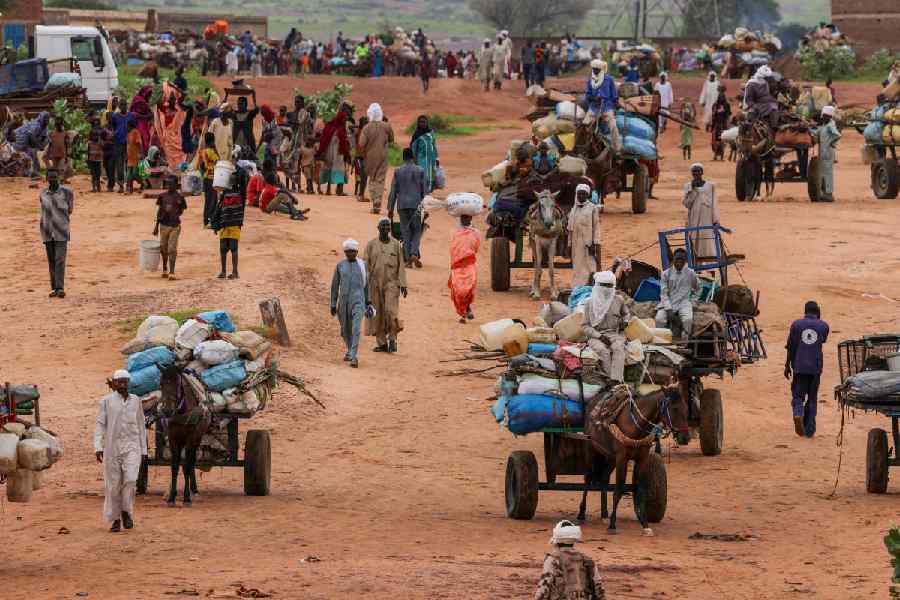The completion of three years of the Russian aggression in Ukraine had been widely commemorated across the international media. But another blood-soaked conflict, the civil war in Sudan that has pitted the Sudanese Armed Forces against the Rapid Support Forces, which is now in its third year, has not garnered that kind of attention. It should have. What began as a bitter power struggle between two military generals, Abdel Fattah al-Burhan of the SAF and the RSF’s Mohamed Hamdan Dagalo, has left over 150,000 people dead and an estimated 13 million — one out of every three Sudanese — displaced. The feud has devastated Sudan’s economy, deepened ethnic fault lines, and led to one of the worst instances of internal displacement. The other humanitarian horrors cannot be overlooked either. Basic resources like water and medicines are in short supply; education centres and hospitals have been crippled; the shadow of famine has lengthened, even as reports of gender violence and recruitment of child soldiers gather pace.
Sudan is an example of how a moment of hope can quickly turn into despair. In 2019, the ouster of a dictator had ushered in hopes of a transition to civilian governance. But just two years later, yet another military coup plunged the country into darkness with power returning to factions within the security edifice. And now, the conflict has worsened as the two generals compete for Sudan’s resources: agricultural land, water, trade routes and, most importantly, gold. While the RSF — Darfur is its stronghold — commands a greater share of the yellow metal, the SAF has control over agricultural land and ports. The longevity of the civil war can be attributed to the designs of the proverbial ‘foreign hand’ as well. Russia, Egypt, Saudi Arabia and the United Arab Emirates, in particular, have all been accused of meddling in and, thereby, worsening the crisis.
Mr Dagalo, to cite one example, has had associations with Saudi Arabia and the UAE, which had once hired members of the RSF militia for their own regional designs. Even now, there are strong reasons to believe that Darfur’s gold keeps the UAE interested in arming the combatants in Sudan. Despite the death and the destruction, and in the face of indifference from ‘conscientious’ global powers, ordinary people in Sudan have shown unmatched courage — sharing food, running clinics, even holding classes amidst camps. The world must come to their aid and not the generals’.










